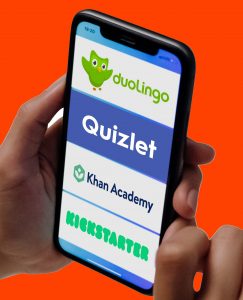18 March 2021
Gamification of Insurance and Loss Adjusting Education
by Kumail Maki
Time and again we find the insurance industry lacks experienced professionals with the skills and expertise to drive positive step-change. This worrying trend is set to continue for years to come, as succession gaps widen outside the major insurance hubs. Established hubs enjoy a strong demand for highly skilled professionals and easy access to international insurance institutes rich in experience and knowledge. But outside these hot-spots, expertise is often harder to come by. Here, many small or medium-sized institutes work in affiliation with international institutes and have fewer education or training opportunities.

Upskilling the Next Generation
How do we bridge this succession gap? High-quality education is essential to empower younger insurance professionals with the skills and knowledge to become our industry’s future leaders. But current teaching techniques are often outdated, with over-reliance on traditional classroom learning, slide presentations and self-study books. Insurance academics point to the many challenges posed by these long-established methods:
- Lack of training resources
- Material not engaging, limited practical examples and application scenarios
- Language barriers
- Cost
- Time away from work
- Companies do not prioritise the education of their employees
Current teaching methods make it difficult for insurance professionals to advance their careers and acquire internationally accredited qualifications. This leads to some young professionals becoming demotivated or seeking alternative career paths.
Covid-19 accelerating digitisation
Restrictions imposed by the global Covid-19 pandemic have overturned education norms. Remote education has blossomed and digitisation of content become widespread. Insurers and brokers have been at the forefront of this change by quickly adopting digital platforms to spread their knowledge and deliver training. But, while remote learning has overcome many of the drawbacks associated with more traditional education, it also has limitations. The unidirectional nature of virtual classes can make students feel less engaged and discourage them from gaining a deeper understanding of the subject.
Gamification: the new learning game
Now, a new educational approach is seeing an enthusiastic uptake from young professionals. Gamification is the use of educational games to provide a blended experience that combines three powerful methodologies: flexible learning, experiential learning and simulations.
What is flexible learning? This puts students right at the heart of the process, allowing them to take part at anytime from anywhere and at affordable cost. Students have easy access to resources while receiving continuous assessment and feedback on their progress
What is experiential learning? Here, participants reflect and learn from an experience embedded within the process and go on to implement the lessons learned. Experiential learning plays a hugely important part in educating loss adjusters about claims handling, although sometimes the insurance market is resistant to this method
What are simulations? These expose students to reality-based scenarios, all within a non-threatening, experimental environment. Simulations provide a safe, structured and accelerated experiential learning cycle. An example might be a claim handling scenario that grows more complex as the student progresses, while following a specific educational curriculum. Simulations give the student a platform for making decisions and reflecting on outcomes without the risk of upsetting stakeholders. Compared to more traditional methods, simulations often make learning more active, engaging and productive. Integra’s IRIS solution offers this method of learning to ‘up and coming’ claims brokers and claims insurers
Learner become players

Gamification enables simulations based on learning outcomes to become the building blocks of a video game. Here, the student interacts with the learning material as a player, with the game providing continuous feedback as its complexity and difficulty increase. Add in reflection sessions and seamless AI-powered feedback, and educational games can bring out the best in remote or classroom learning. Better still, they can be played anywhere, at anytime and from any device.
Global insurance education opportunity
Educational games have the potential to break down learning barriers within the insurance sector by allowing young professionals the chance to work on industry-specific case studies in a flexible and risk-free experimental environment. If published internationally in multiple languages, games could be a catalyst for transforming and standardising the insurance learning curriculum on a global scale.
An experience-led educational format, tailored to the needs of young professionals and created by industry leaders, could be the key to bridging the succession gap facing the insurance industry currently. Gamification of the insurance education system would rely on the insurance community providing experiential learning content. After all, simulations can only deliver an authentic user-experience if they include information about real claims.
I myself am passionate about bridging the knowledge gap through gamification. The desire to share knowledge and up-skill the market is symbiotic to Integra’s growth plans. With new offices opening and local resource partnerships forming globally in 2021 and beyond, I intend to continue working with regional insurance accreditation bodies within the UAE, Saudi, and my native Bahrain to further drive this initiative under Integra’s guidance and stewardship.